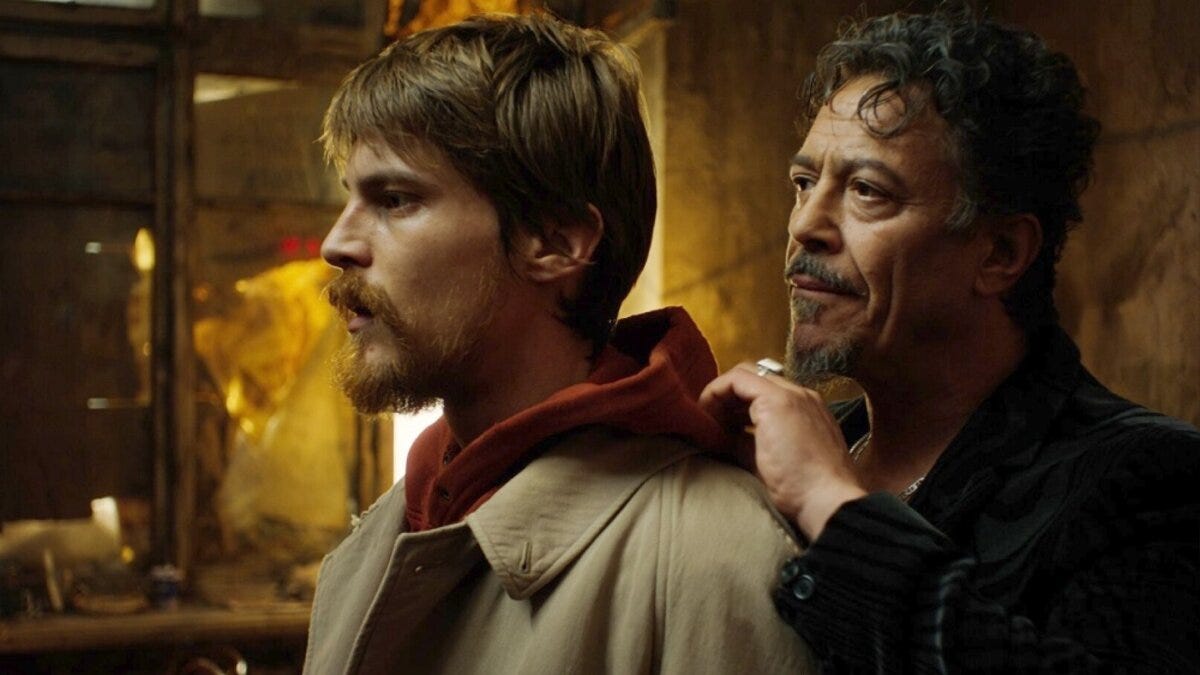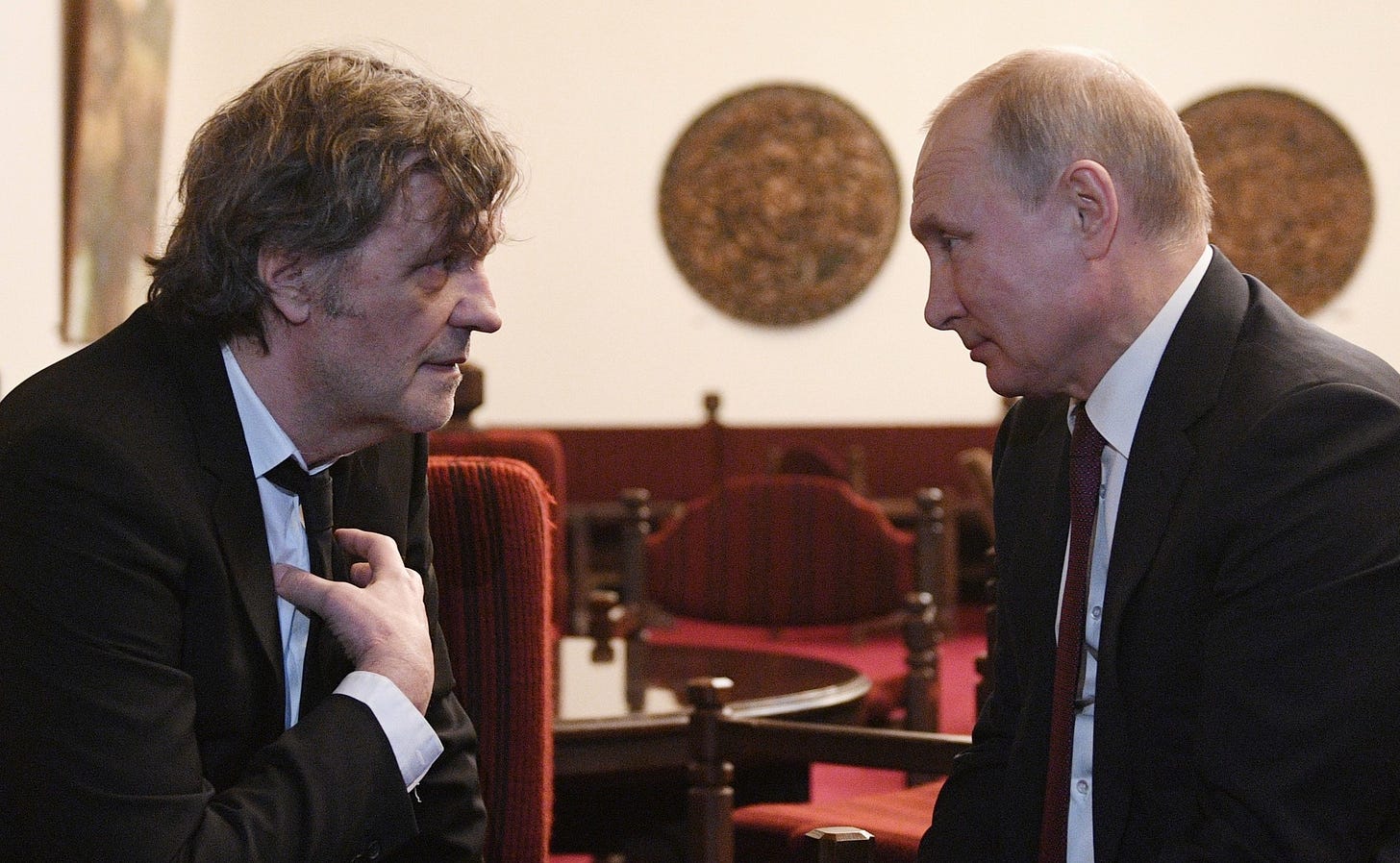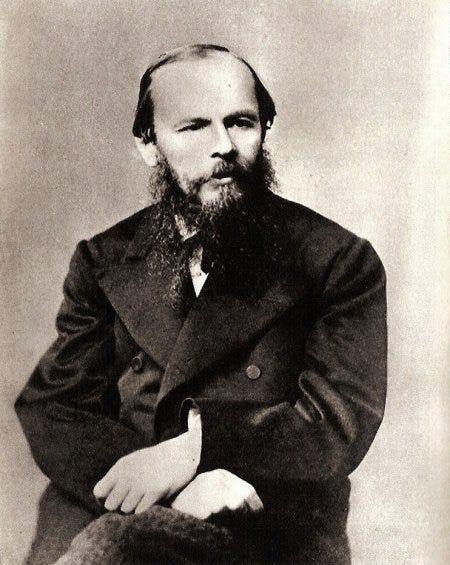Alongside the well-known culture wars taking place in today’s Russia, another one has intensified: the war over Dostoevsky. Propagandists are trying to portray the author of Crime and Punishment and The Brothers Karamazov as a forerunner of today’s Putinist Russia.
Forbidden Crime and Punishment
A new censorship scandal erupted in Russia a few weeks ago. Kinopoisk, Russia's largest streaming platform and the country’s equivalent of Netflix, released a TV series – an adaptation of Dostoevsky's Crime and Punishment. Officials responsible for cultural policy watched the series and strongly objected. Initially, the series was set to premiere on October 26. Then the premiere was postponed twice and later delayed indefinitely. Eventually, the series started streaming – and after each episode, a new scandal flared up. Patriots are outraged: they see Crime and Punishment as promoting liberal values and humanism, which infuriates them.
Screenshot from the new version of Crime and Punishment
There are many reasons for the scandals. First, the series' director is Vladimir Mirzoev, one of the most prominent opponents of the regime in Russian cinema. As early as 2012, he was part of the opposition’s coordinating council led by Alexei Navalny, and in 2022, he spoke out against Russia’s invasion of Ukraine. He has already made films with a sharp anti-dictatorial focus; for example, his adaptation of Pushkin’s tragedy Boris Godunov, released in 2013. In that film, while preserving Pushkin’s text, he transposed the events into the present day. He uses the same approach in Crime and Punishment – the action takes place in modern-day St. Petersburg.
Patriots immediately began writing denunciations: they claimed that such an unreliable director should never have been entrusted with adapting Dostoevsky.
And that was just the beginning. The second episode outraged conservatives as well – in it, Rodion Raskolnikov, played by actor Ivan Yankovsky, dances naked on a table in a kind of drug-induced trance. In modern Russia, showing the naked male body remains taboo – it is immediately equated with LGBT propaganda.
Dostoevsky the Militarist
It got worse. In the third episode, Raskolnikov utters the following line: “Do you know why everyone loves war so much? Because they believe it is a remedy. For baseness.” Pro-Kremlin bloggers immediately pointed out that these words are not in the novel – which means Mirzoev tried to sneak anti-war propaganda into the film. However, it was later discovered that this line is a quote from Dostoevsky's essays, The Writer's Diary. And supposedly, Dostoevsky wasn’t being ironic; on the contrary, he was “a reactionary, an imperialist, and a militarist,” meaning he sincerely admired war. They recalled his comment on the outbreak of the Russo-Turkish War of 1877:
“The people believe they are ready for a new, renewing, and great step forward. It is the people themselves who have risen to war, with the Tsar at the helm. When the Tsar’s word rang out, the people flooded the churches, and this happened across all of Russia. When the Tsar's manifesto was read, people crossed themselves and congratulated each other on the war.”
One pro-government Telegram channel gleefully remarked: “It seems the liberals have failed to tarnish Dostoevsky's reputation after all. So they’ve chosen a different strategy: they distort the meaning of Fyodor Mikhailovich’s works and force his characters to mutter their own petty liberal ideas.”
Dostoevsky indeed underwent a significant transformation: from a revolutionary sentenced to death in 1849, to a religious thinker during his exile, to one of Russia’s most successful writers in the 1870s, ultimately embracing deeply conservative, reactionary, and ultra-patriotic views.
Putin’s supporters constantly invoke Dostoevsky. For example, Emir Kusturica, once a celebrated Serbian director, two-time winner at the Cannes Film Festival, who, for example, directed Arizona Dream starring Johnny Depp – now he is the head of the Russian Army Theater and a Putin fan, plans to make a film about Dostoevsky's life. Just recently, he spoke at the opening of a film festival organized by RT.
Kusturica and Putin
“I want to say that the symbol of this festival is Fyodor Mikhailovich Dostoevsky. He said once, and repeated many times, that there is no liberal order in life... What reason cannot resolve, the Oreshnik will,” Kusturica philosophized, referring to a new ballistic missile that Russia recently launched at Dnipro.
Raskolnikov’s Dilemma
Quoting Dostoevsky has become fashionable in today’s Russia. Propaganda media proudly reported a month ago that Dostoevsky has become the most popular writer in Russia this year, outselling any other author. However, the propagandists’ joy is premature. In his novels, Dostoevsky does not glorify militarism or imperialism – he only became a militant conservative toward the end of his life. In Demons, one of the characters, Shatov, claims that the Russian people are a “God-bearing nation.” Some critics believe that Dostoevsky the citizen agreed with this view. But Dostoevsky the writer portrayed Shatov as an almost parodic figure, making it hard to take these words seriously.
Moreover, Dostoevsky’s novels have acquired a particularly new meaning in modern Russia. For example, Crime and Punishment almost reads as a work about Russia’s current war against Ukraine. How do most war supporters in Russia justify Putin’s decision? They say something like this: “Why was it okay for the Americans to attack Iraq, but not for us to attack Ukraine?” For them, the right to violence is an inalienable privilege of a superpower. Essentially, this is a repetition of Raskolnikov’s dilemma: “Am I a trembling creature, or do I have the right?” The protagonist of Crime and Punishment wanted to kill the old woman to prove to himself that he was a superman. Meanwhile, Putin’s Russia kills thousands of Ukrainians to prove that it is a superpower.
But unfortunately for them, Dostoevsky understood all too well how this ends: it ends with punishment, and it is inevitable. The Russian fascists s simply cannot read. They think Dostoevsky is a fitting figure to serve as an ideologue. And perhaps that’s true – because he describes very clearly that Putin’s Russia is on the road to hell.








Hi Mikhail, I just read some of your articles in der Spiegel. I would love to have you on my podcast, The Nexus, for a debate.
Cheers and best regards from Bern,
Marc S.
I love your article on Russia now and how Dostoevsky became so attractive to scoundrel Putin and his former communist-henchmen. D. was a complicated man politically that, in my soviet time, he was prohibited from our schools because of his tsar's support and his satire of so-called "revolutionaries'; now, the same former communists exhibit him as their defense.